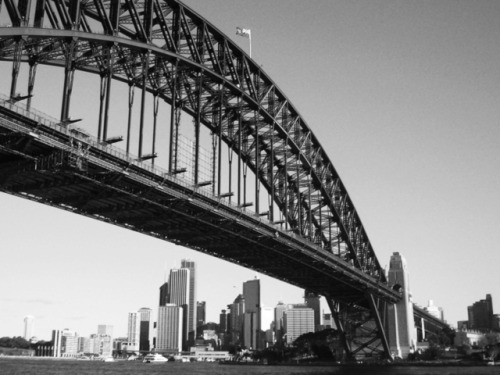The story of an elderly retirees who died suddenly from complications sounds too familiar to many. A question arises: is there a relationship between an unprepared retirement and the declining level of health of these retirees? The retirement age in Indonesia is somewhere around 58 years old. In contrast, Australia’s pension age is currently 65 years old and will extend to 67 years of age in the year of 2023. Indonesian workers who reach that age would generally be required to retire by their employers. Should no other company is in needs of their services and skills, they would end up with no stable income they once had. Typically, they would find themselves to own a large number of assets which have no capabilities to earn income, or worst, they are still under huge amount of non-productive debt to be serviced.
For young people whose at their productive age, there is an urgent needs to shift their mindset. From the earliest age as possible, they should ask themselves the following question: “If I were to stop working today, how long would I last without having to work?” Often, adults at their productive age fail to ask this very question. Worst feeling in the world is when you have to go out to work just when you are too old or too sick, just to keep up with the monthly bills.
Whether you’re managing a country, a company, a family or yourself; we all have the same items, namely revenue, expense, asset, liability and equity. Hence, the reason as to why I draw comparison between a country, being Australia, and you or I as an individual.
The motivation of this writing is simple: to encourage everyone to take full responsibility of their personal finance early in life. More often than not, it is only when individuals could not afford to work then they realize the mistakes they made throughout their productive age.
So, what did Australia do right that we could replicate to our personal finance?
1. It exploits its strength and luck, as well as managing its affairs properly
Abundance in minerals
We cannot defy the fact that the country is blessed with abundant of high-quality minerals. As the title suggested, Australia is considered as “a lucky country” regardless if the term was coined as a sarcasm when it was first widely quoted. The country is rich in minerals to name a few: iron ore, nickel, coal, gold, natural gas, and the list could keep go on. Put it this way, Australia is a trust fund kid. You know, the kid with a significant amount of wealth coming down from their parents and/or their great-grandparents that entitle her not to work for the rest of her life.
Producers of high quality food
The country was so blessed with the abundance of minerals, it is also the leading world producer of food. Cattle, dairy products, forestry products, are to name a few of its produce exported to countries like Indonesia, China, and Japan. The raising middle-income Chinese in mainland China is becoming single-biggest market for Australian food export in recent years.
Reliable justice system
According to World Justice Project, Australia’s Rule of Law Index is ranked within the top ten in the world among the Scandinavian countries, Germany, and Singapore. It serve the measurement of how rule of law is experienced and perceived on daily basis by ordinary people. This strong and reliable justice system is a strong foundation of which the business could operate clearly. This in turn, gives incentive to many businesses to flourish.
The key personal take-away
*Define your strengths and weaknesses (as well as where your luck lies).
It is not easy to determine your strengths and weaknesses fairly. Especially when it was conducted by ourselves. However, the hardest part would be to determine what is our luck. Too often, we took our luck for granted until someone brought it to our attention. When you have identified these components, then you can continue to the second take-away.
*Be a “producer” of products and/or services that the rest of the world would want or need.
If you are good in baking the most delicious cake that everyone devour literally as well as devouring it on social media, why wouldn’t you continue on? The best thing in the world is to get paid while doing what you like best and be really good at it.
*Be accountable and be willing to preserve your reputation
Who wants to to do business with a non-competent and/or morally-deficient kind of person? That’s right. Nobody. Warren Buffett once famously quoted that not only he’s willing to pay more for the company he’s acquiring if he sees that company has more integrity than the other, he also prepares to pay premium to maintain his own reputation if he had to.
2. It limits the number of non-productive people
Less in number, but more productive people
Australia is a large continent with a population of less than twenty-four million people. The last report by the World Bank, Australia’s population density is merely less than three people per sq km of land area. This is far less than other countries with comparable GDP such as South Korea (517 people per sq km), Mexico (65 people per sq km) or Spain (93 people per sq km). Yet, in 2015, Australia is one of the top 10 countries with highest GDP contribution per capita.
Astute immigration policy
If you have gone through the process of getting permanent residency in Australia (or equivalent to a green card in the States), you would know how difficult it is to get one. Anyone who possess this type of visa will allow them to live in Australia indefinitely, and have the right to work and earn a living without hour restriction as many type of visa has.
The key personal take-away
Some of the readers would find these obnoxious and unpleasant. Yet, there is a ring of truth lies within them.
*Limit the number of non-productive people within your circle/business.
A British anthropologist, Robert Dunbar suggest that we could only have a stable 150 relationship. His research was the basis of the San Francisco social network apps, Path, to limit the number of friends you could have (although they expanded the number to 500 now). This shows that you do have limitation in the ability to maintain a good relationship. And from the Australia’s case, it shows that it chooses what kind of quality in people that they would like to live with, the kind of skills that they are lack of that the migrant could contribute, and the kind of experience that the migrant possess. In our day-to-day situation, nothing drains our energy faster than negativity. Although the level of negativity varied differently from each individual, it still what it is. We need to stay away from it. I personally tend to prefer surrounding myself with positive and able people. Nothing beats the magic of the interaction with this kind of people. Same goes to people who work for you (if you are happen to be a business owner). You want the best and ones that could contribute, as well as those who are compatible to the company culture.
3. Invest in productive items
High quality education
Australia is one of the top destination in the world to earn education credentials. Students from around the world are flowing into the country each year in hoping for a better start in life following the graduation from one of their university. Australia has one of the highest literacy level in the world, only below those of Scandinavian countries. The Australian government made it compulsory for its citizen to attend education from the age of five to seventeen. The pending on education is massive. Foundation to Secondary education is free at government schools. It is no rocket science that a good level of education will eventually contribute significantly to the workforce quality, which in turns, will prosper the nation in the long run. To quote Martin Luther King Jr: “The function of education is to teach one to think intensively and to think critically. Intelligence plus character — that is the goal of true education”.
Investment in infrastructure
Australia’s total fixed capital investment has been rising in a sustainable rate as a proportion of its GDP ever since the World War II, even though the overall number is decreasing from the 1980s. Infrastructure spending is seen as a necessity as it would ease the burden of economic agents to conduct their activities. It helps job creations activity and boost economic growth in many ways. It makes the economic activities easier, but also more efficient. This availability of a proper infrastructure is also one of the attraction to many global businesses to do their activities in the country. Consider this situation: would a global businesses or dot-com start-ups from around the world would invest in the country if the internet connection is unreliable at best? The right amount of investment as well as the right area of the vast infrastructure choice is the key in every government spending activity.
The key personal take-away
*Invest in high quality education
Depending on your line of work and career aspirations, having proper education credential will almost certain opening up opportunities in landing your dream job. If your career aspiration to work for yourself, then a good education could help you in starting and managing your businesses. Think of education and training as an investment that in the future would greatly benefit your income-producing activities. Referring back to the motivation that inspire this writing that I stated at the beginning, many of these retirees certainly did not lack of education. In fact, many of them were the leaders of their industries. It is financial literacy skill that these retirees were lacking. In short, invest in financial literacy books, training or seminars. It last a lifetime.
*Reduce the amount of non-productive debt
It is truly the modern day of finance. Purchasing goods through credit is the norm. Unfortunately, most of the instance of goods that are being purchased through credit are of which depreciate in value. In return for such exercise, you are then required to pay a sky-high interest to the company whose financed the transaction. Here, if the goods are not productive, you incur the cost of owning the asset twice, the depreciation expense and interest expense. The key issue here is to differentiate the definition of “productive” and “non-productive” expenditure which we will look at the next point, as well as a full understanding of goods which depreciate in value. You would appreciate the fact that these goods including cars, electronics, clothes, and so on.
*Purchasing goods to generate more income
We’re not talking about the obvious, such as buying bonds and shares. Buying fancy products such as an iPhone, jewelries or even a Ferrari could have a legitimate reasoning as to why they should be purchased from the outset, hence “infrastructure”. A brand new iPhone with high quality camera could be one of the example. It could help a real estate agent to capture the beauty of dwellings that he is currently selling. Whatever it is, the rationale should lies whether you could afford it comfortably first, then if it could help you to further your current earning base.
First Published in Aug 2016


